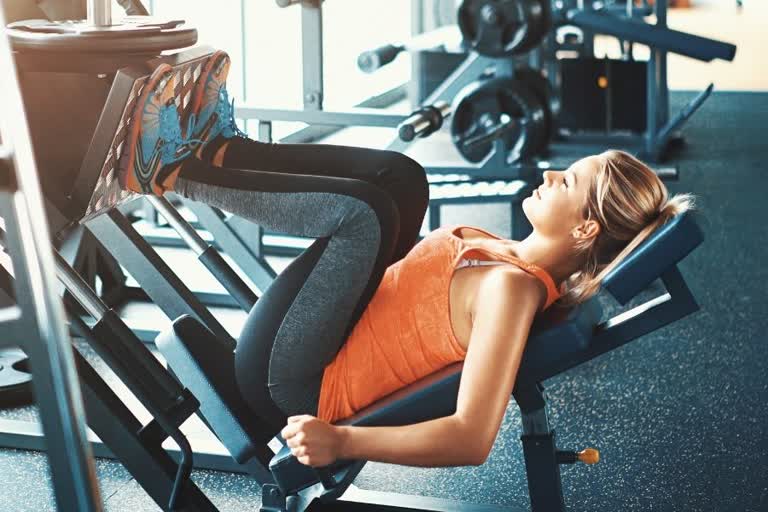Previous research has confirmed that not getting enough sleep (the recommended amount for adults is seven to eight hours a day) or getting poor quality sleep increases risks for high blood pressure, elevated cholesterol and atherosclerosis, which happens when fatty deposits build up in arteries. Not getting enough sleep is linked to weight gain, diabetes and inflammation, all of which can worsen cardiovascular disease. Sleeping too much or too little also has been shown to increase the risk of stroke, heart attack and death.
For this study, researchers enrolled 386 adults who met the criteria for overweight or obesity, which was a body mass index from 25-40 kg/m2. Participants were inactive and had elevated blood pressure, measuring from 120-139 mm Hg systolic (top number) and 80-89 mm Hg diastolic (bottom number). Participants were randomly assigned to a no-exercise group (for comparison) or one of three exercise groups (aerobic only, resistance only, or combined aerobic and resistance) for 12 months. Everyone in the exercise groups participated in supervised 60-minute sessions, three times a week, with the combination exercise group doing 30 minutes of aerobic and 30 minutes of resistance exercise.
Study participants completed a variety of assessments at the start and at 12 months including the self-reported Pittsburgh Sleep Quality Index (PSQI), which measures sleep quality. Lower scores on the PSQI indicate better quality sleep, ranging from 0 for the best sleep to 21 as the worst possible sleep. Scores greater than five are considered "poor quality sleep."
Researchers also measured sleep duration; sleep efficiency (how much time one is actually asleep divided by the total amount of time the individual is in bed); sleep latency (how much time it takes to fall asleep after getting into bed), and sleep disturbances (how frequently sleep is disturbed by things like being too hot or too cold, snoring or coughing, having to use the bathroom or having pain).
The study found:
- More than one-third (35 percent) of study participants had poor quality sleep at the beginning of the study.
- Among the 42 percent of participants who were not getting at least 7 hours of sleep at the study's start, sleep duration increased by an average of 40 minutes in 12 months for the resistance exercise group, compared to an increase of about 23 minutes in the aerobic exercise group, about 17 minutes in the combined exercise group and about 15 minutes in the control group.
- Sleep efficiency increased in the resistance exercise and combined exercise groups, but not in the aerobic exercise or no exercise group.
- Sleep latency decreased slightly, by 3 minutes, in the group assigned to resistance exercise only, with no notable change in latency in the other participant groups.
- Sleep quality and sleep disturbances improved some in all groups including the group that did not exercise.
Based on these findings, interventions focused on resistance exercises may be a new way to promote better sleep and improve cardiovascular health. "While both aerobic and resistance exercise are important for overall health, our results suggest that resistance exercises may be superior when it comes to getting better ZZZs at night," Brellenthin said.
"Resistance exercise significantly improved sleep duration and sleeps efficiency, which are critical indicators of sleep quality that reflects how well a person falls asleep and stays asleep throughout the night. Therefore, if your sleep has gotten noticeably worse over the past two stressful years, consider incorporating two or more resistance exercise training sessions into your regular exercise routine to improve your general muscle and bone health, as well as your sleep," he added. A study limitation is the researchers' use of a self-reported sleep questionnaire to assess sleep rather than objectively monitoring sleep.
(ANI)
Also Read: 5 Yoga poses for weight loss



